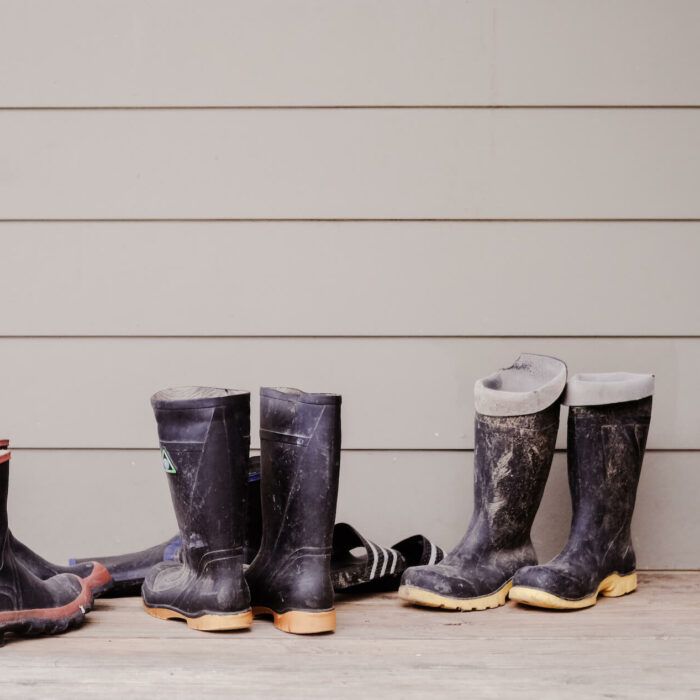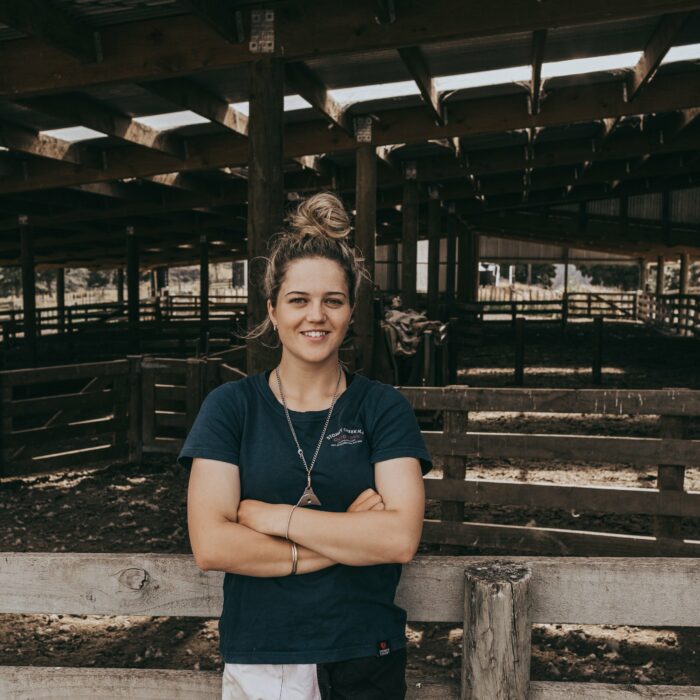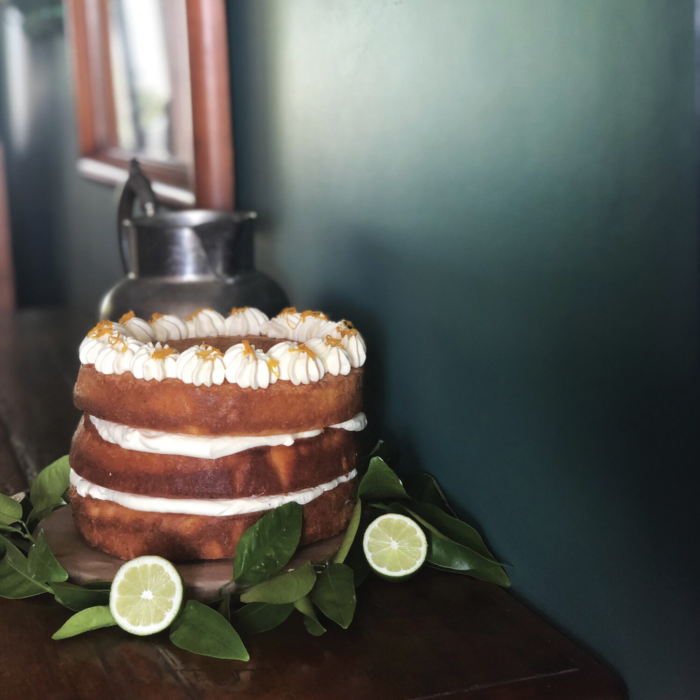11 September 2022
A Mirror for the Soul
Mano Whenua. Heartland.
writer: AS TOLD TO SIONAINN MENTOR-KING
photographer: sara orme
Sara Orme, 58, (Ngāti Awa, Ngāti Tarāwhai, Te Arawa, Pākehā) is a documentary photographer, māmā and feminist. She shares some of the poignant images from her ongoing project Te Teko, along with kōrero on staying relevant, feminism and doing what she loves.
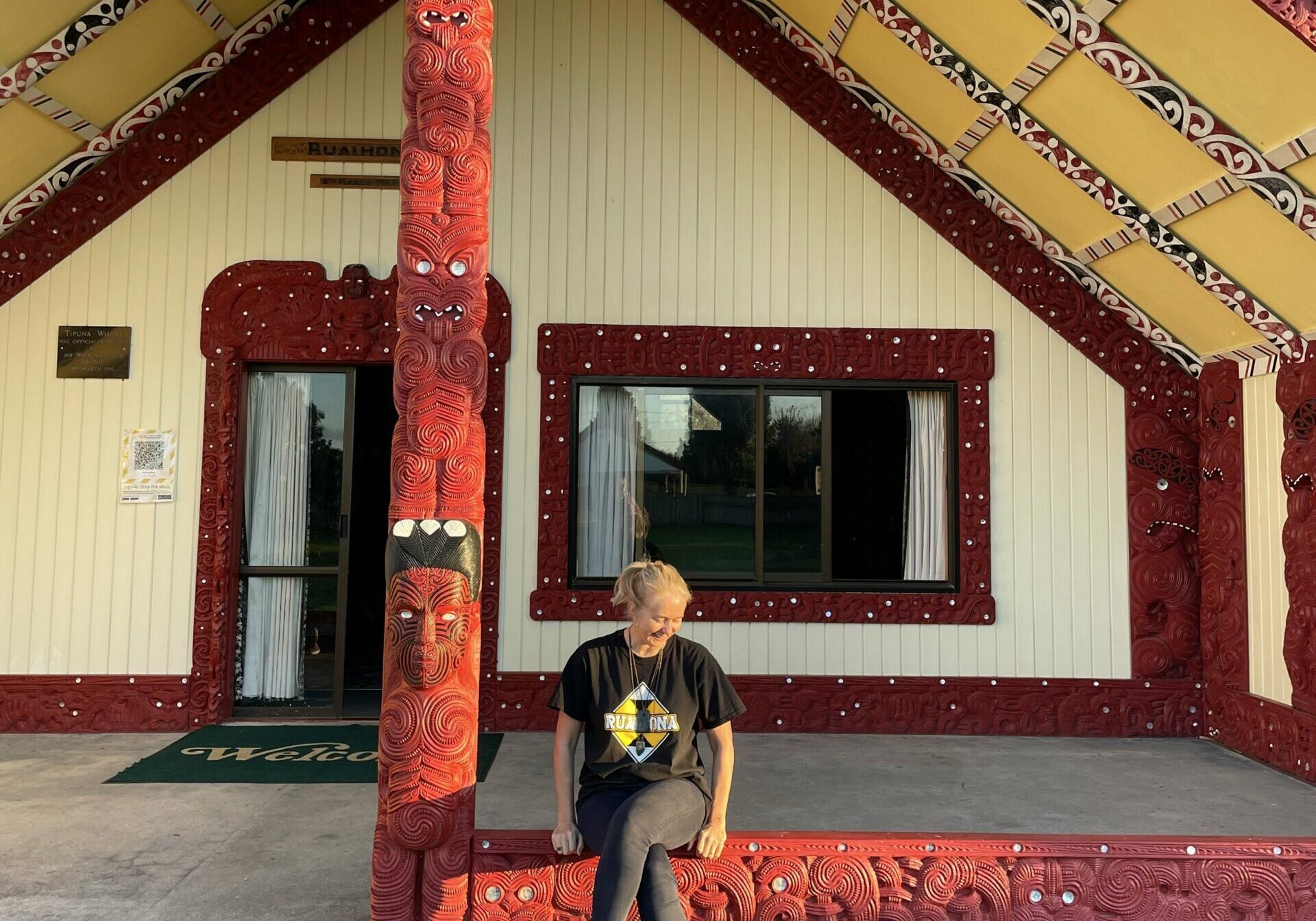
In Te Teko, Sara is known by her friends and whānau as Hera or, fondly, The Blonde. This image of Sara sitting in front of the wharenui of her marae - Ruaihona - in Te Teko was taken by Lesley Savage.
They say that, as a photographer, what you photograph is just a mirror for your soul. When I think of all the things I’ve photographed over my lifetime, it’s absolutely true.
In the late eighties I was doing feminist studies, it was all about being feisty. I had a degree in art history and sociology, then I went back to university to study photography. My first project as a student, This is Not the Red Carpet, was a documentary project at the Cannes Film Festival in 1993. In today’s terms you could call it a response to #MeToo.
Then I became a mum and everything became so much harder. I was married and also needed to earn a living, so I had to make photography work for me. I started doing portraits and weddings. Documentary was always what I wanted to do, but trying to be a documentary photographer in New Zealand in the nineties, as a woman with children, was almost impossible. So that dream kind of went.
Then my children grew up and I got a bit of freedom. A lot of my work during that period was almost like going back to my own youth, like I was a twenty-year-old girl again. I started getting more into advertising and doing a lot of lifestyle work. I was known as the “Māori photographer” because I had a lot of Māori connections. And now I’ve got through that stage and it’s all about my whānau. As we get older you become more aware of everyone passing around you. That’s where my focus is now, on a spiritual level.
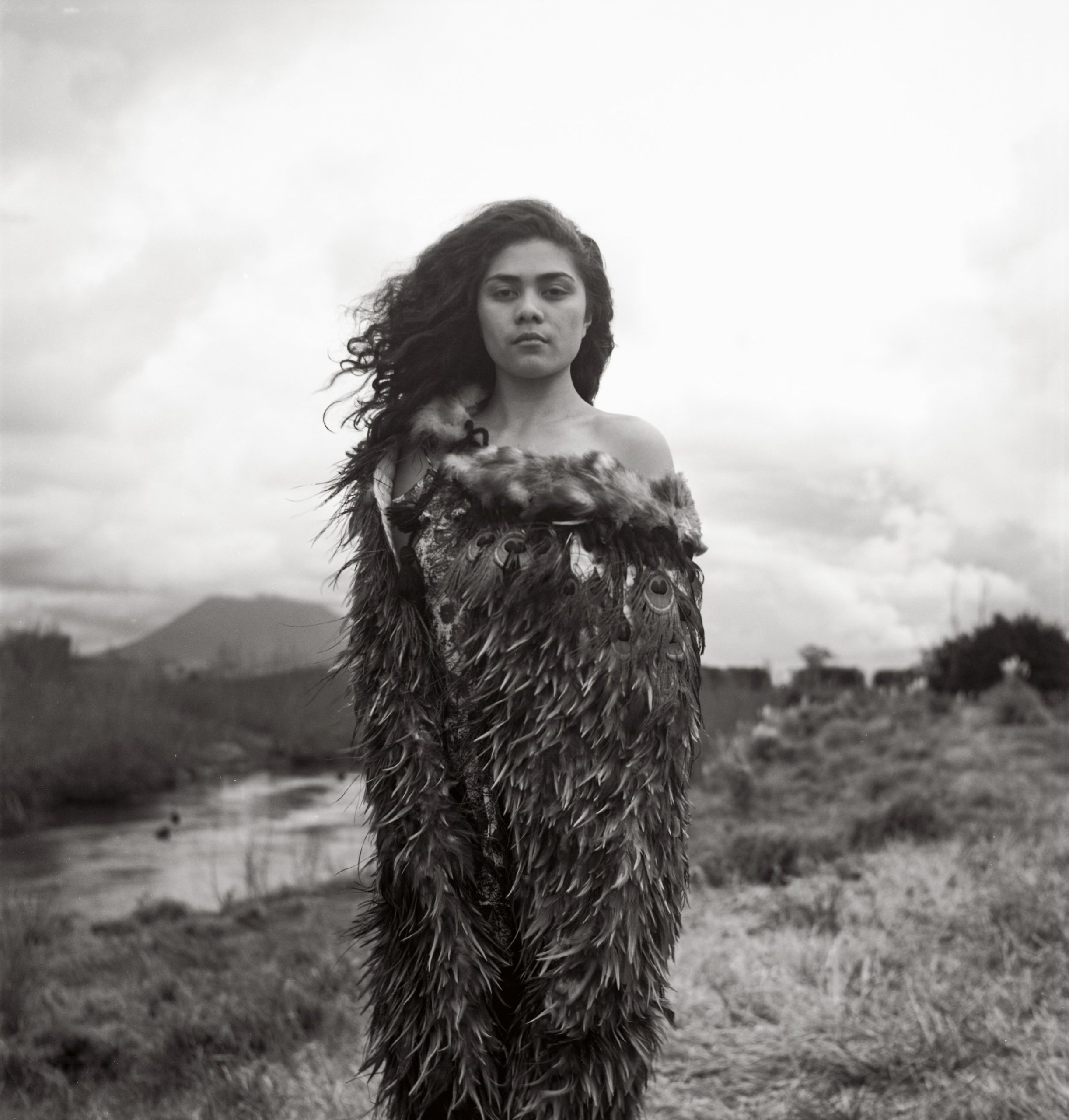
Rangi. "Her full name is Rangi Kawhitia. When I started the Te Teko project I was working a lot in analogue. Rangi was quite keen to get into a bit of modelling, and her grandmother, who was my father's first cousin, pulled out the kahu huruhuru, which we weren't expecting, and said, 'I really want Rangi to wear this.' It was their traditional whānau korowai that only gets worn for very special occasions, so it was a real privilege. You can see that she's really feeling the power of her tūpuna. She's got her maunga and her awa all around her."
My dad was a lawyer. He represented a lot of different bodies for the Treaty of Waitangi kaupapa and was very active in Aotearoa as well as Te Teko, his birthplace. He believed that education was important for his people. I felt like I needed to carry on his mahi, like I had these responsibilities as a photographer.
Twelve or thirteen years ago, just before my father passed, we regularly went to Te Teko to see the whānau, and I started photographing these moments. I knew Te Teko was a little piece of New Zealand very few people knew about. If you drive past, your first response is it's very impoverished but, like all small towns, there's this incredible wealth and richness of spirit there. These were the moments that I kept seeing, that I wanted to share. And after Dad passed, I started amping up that project. It was really a way for me to stay connected with my father and tūpuna.
This project definitely has its complexities and layers. Even though I'm tangata whenua there, and these are my whānau and I feel a real connection, I still live in Auckland. I did have a different upbringing and, though I'm on the inside, I didn't grow up there. I'm really mindful and respectful of that.
And it's not a project where I go, "Right! Here's twenty images!" and I go to a gallery and put them up. It's really complex, cos I'm telling this narration about whānau and the history of what happened in Te Teko over 160 years ago - there was a very bloody siege on the riverbanks in the 1860s that was absolutely terrible, people were slaughtered, land was taken. Initially I was talking to people, making my own summaries - referring a lot to history - but now I'm just doing interviews. That sort of evolved, and it feels way better. My images are quite raw. They're not romanticised - half-naked wāhine looking glamorous with their korowai. But they've been pretty well received. I'm talking more about the whenua now, rather than just a documentary project on Te Teko. It's more about awa and maunga. I like the idea of it growing beyond my own whānau.
Aunty Babe. "I love visiting Aunty Babe. She lives just out of Te Teko in Whakatāne and she's a great storyteller. She's always like, 'Come on, haere mai, Hera! Come on, Hera!' and takes me into her room and sits me down and goes through all the photos on her wall and tells me all these stories. I've got stories of when she got whipped for speaking Māori. She is actually my father's last living first cousin. She's kind of the end of the line, so I always go and visit her. She talks about being 'ready to go'. And I'll say, 'Where are you going, Aunty Babe?' 'Oh, I've had enough of here. I'm ready to go to be with my darling Jesus.'"
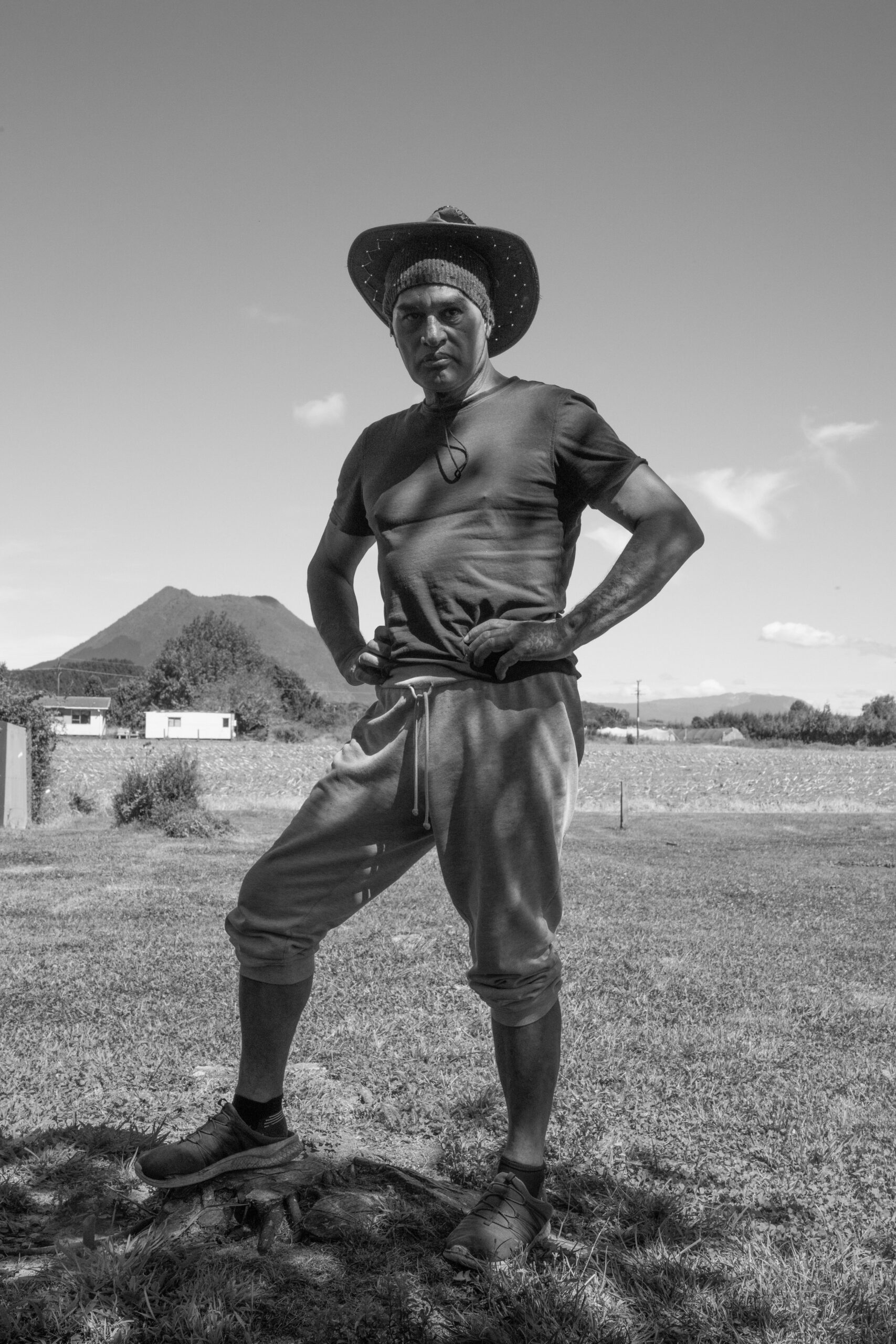
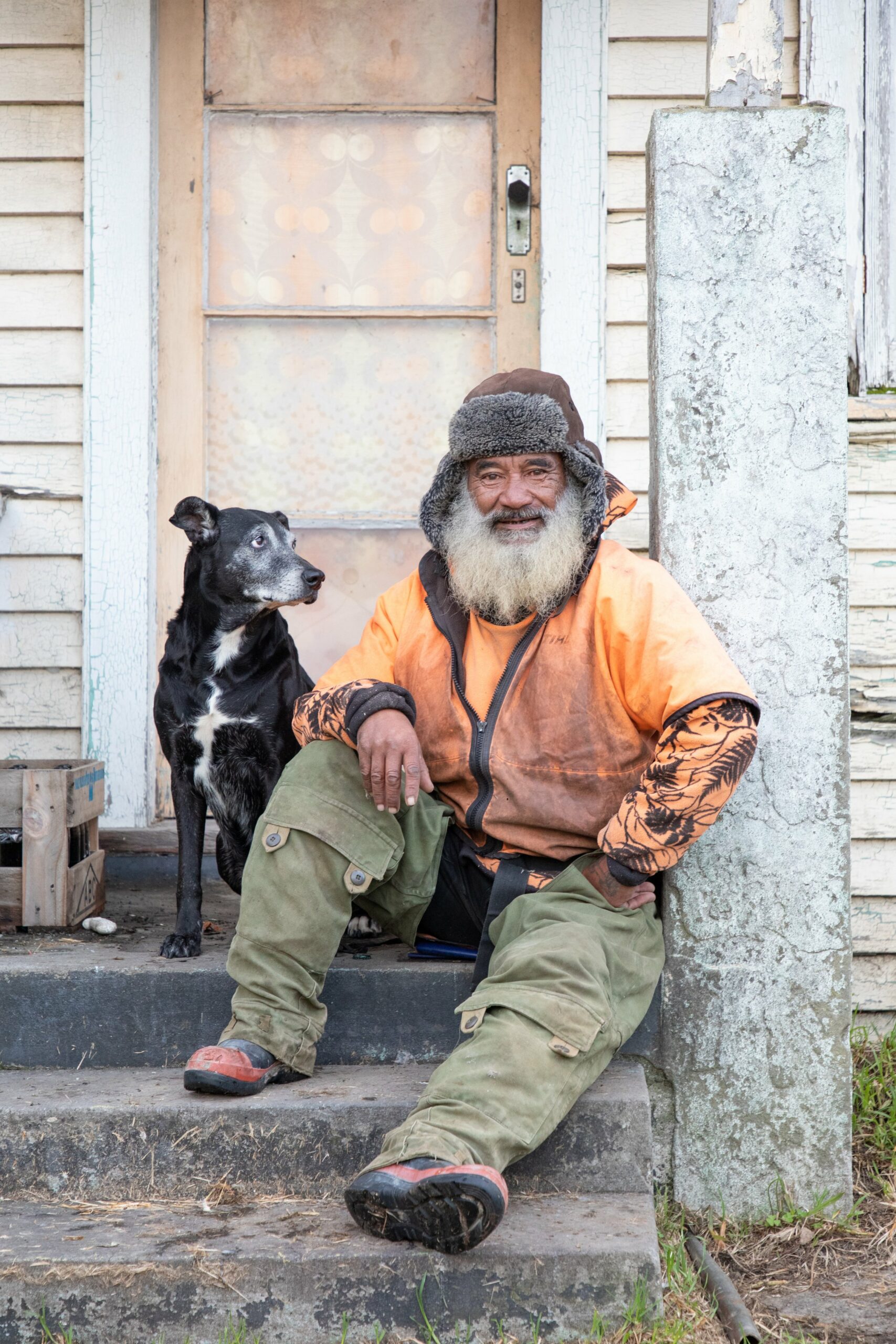
Because I'm this fair-skinned Māori, everyone assumes, "Oh, you know, you're just starting to connect back with whānau." But that's not at all the case. We'd go to Te Teko every holiday. I've always felt very connected. I can go to this place and my tūpuna are all around me, and I can bring my grandchildren. When they go there, there's this sense of wonderment. We have this incredible sense that this is our place. They're so proud of their maunga and their pepeha.
Being an artist in New Zealand is actually really tough. It's easier to get recognition internationally than it is here. I didn't come through the traditional art school road, I completed a degree in sociology with a focus on ethnicity and then went to study photography at Unitec and found my own path. I've actually been told that my problem is that I was a commercial photographer, that I'm damaged goods because how dare I make a living, as a woman, from my profession. There's very few women of my generation, particularly with children, that make it in the arts.
I always say to people I've been a photographer for over a hundred years, but it's been nearly thirty years and the changes have been phenomenal. I feel like I've come back full circle to what I've always wanted to be and where I started. I had to go through this journey to be relevant, but now I'm able to stay relevant and do what I love.
When I was a kid, my dad used to take me to society garden parties. I had one foot in that world, as my father did, and then I had my other foot in the totally different world of Te Teko. You actually couldn't get two more extreme worlds, and that was Dad's life. For him, it became harder as he got older, but for me it's a privilege. My father's guiding me, and I'm just following what he would do.
Glossary. Awa, ancestral river. Haere mai, come here. Kahu huruhuru, feathered cloak. Kōrero, stories or conversations. Korowai, a cloak with black twisted tags or thrums. Kaupapa, issues. Mahi, work. Māmā, mother. Marae, the courtyard area in front of the main building. Maunga, ancestral mountain. Pepeha, ancestral expression of connection. Tamariki, children. Tangata whenua, person of the land. Tangi, to mourn, often used to describe a funeral. Tūpuna, ancestors. Wāhine, women. Wairua, spirit. Whānau, family or families. Wharenui, meeting house. Whenua, land.
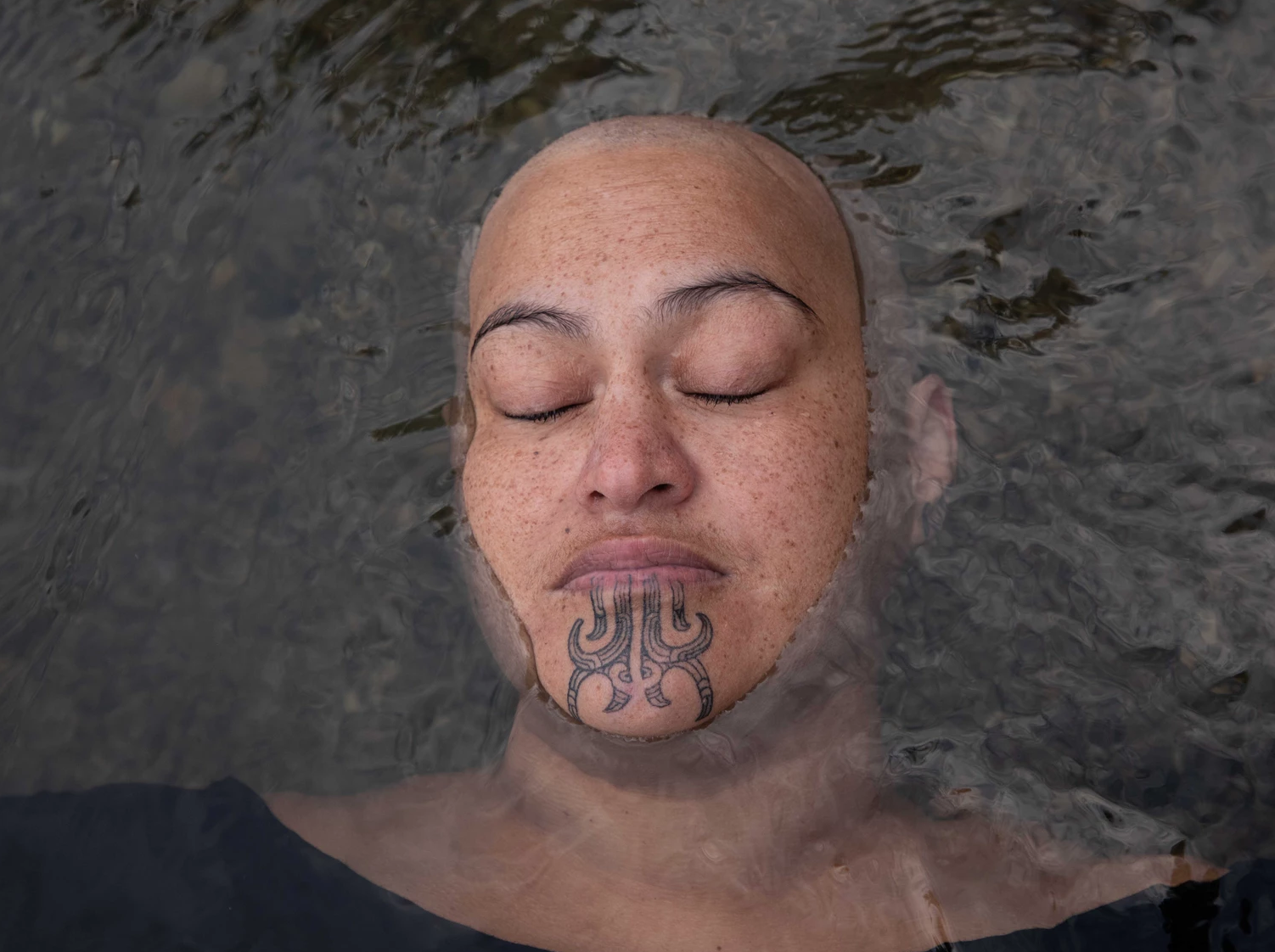
Wairata. "This was taken only a couple of years ago. I did a little series on Wairata. There's a lot of history with that awa, the siege that happened in the 1860s and the bloodshed. And here we are today just totally owning that."
Greta."Greta is actually the mother of Rangi and Wairata. Whenever I go back to Te Teko I always do the rounds, go and visit everybody. When I turned up at Greta's house she was wearing that great pink jacket and I said, 'Oh, Greta, I've got to take a photo.' I've always got my camera in the car, and if there's a mutual 'sure, yeah,' then I can. For me it's always a privilege to be able to capture those spontaneous little moments. As for that dog, it's just so comical. It's just a Sunday afternoon on the porch hanging out with the pooch."

This story is part of THREAD, a year-long project by Shepherdess made possible thanks to the Public Interest Journalism Fund through NZ On Air.
If you enjoyed this story, please share with someone else.
This story appeared in the Kōanga Spring 2022 Edition of Shepherdess.
Get your hands on a copy.
Related Stories
Carley Pryce
This story is the sixth in a series where we share, in their own words, the stories of ten women who call Tararua home.
Citrus in Season
Mother of five and grandmother of soon-to-be eight, Robyn Keeling, shares a few of her favourite citrus recipes from the farm kitchen.

